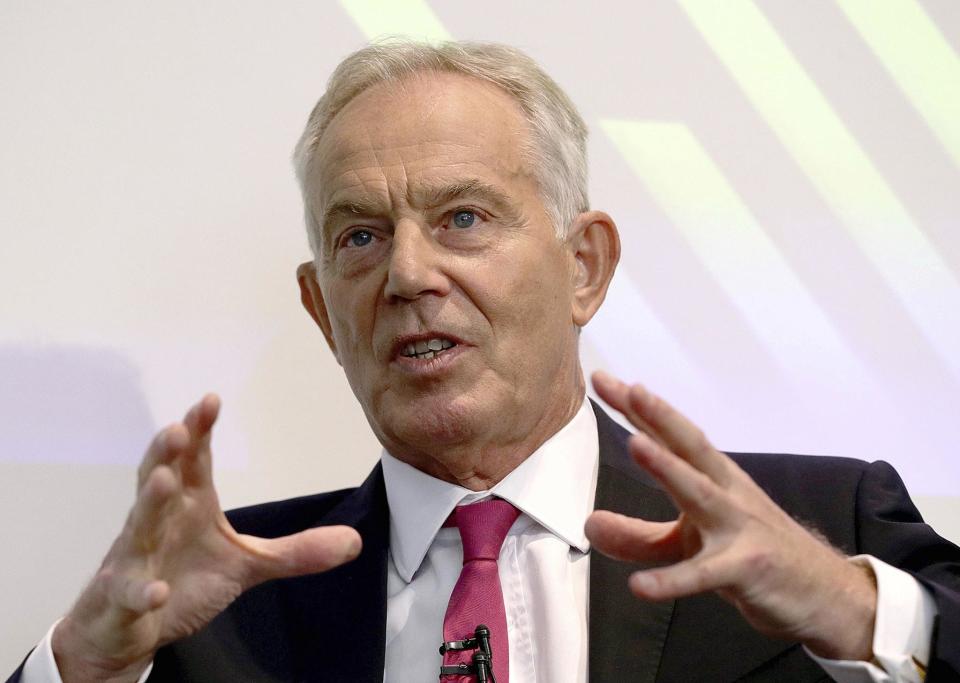Whatever you think of Tony Blair, Labour and the Lib Dems should learn from him if they want to win an election

I’m 56 and only one non-Tory leader, Tony Blair, has won an election in my adult life. Meanwhile, five Tory leaders have won eight elections, the last by a landslide on Thursday.
So a starting point in this “period of reflection” for Labour and the Liberal Democrats is to reflect on what Blair got right and Jeremy Corbyn and Ed Miliband, and equally Nick Clegg and Jo Swinson, got wrong.
First, a successful Labour or Liberal leader speaks the language of middle England on crime, defence and tax. A prime minister must, first and foremost, be trusted to keep the country safe and prosperous – particularly a Labour prime minister who, the voters and the right-wing media fear, has the likes of Len McCluskey in the wings.
Whatever you think of Iraq (and I didn’t support it at the time even though I worked for Tony), or penal policy (and I think we lock up far too many non-violent offenders), no one ever doubted that Blair was tough on crime and tough on defence. Whereas everyone doubts that Corbyn could be trusted on defence, and his manifesto for this week’s election was an orgy of tax increases and spending sprees, which even the beneficiaries knew were unaffordable and undeliverable.
Second, socialism is the language of priorities, as Nye Bevan said, and a successful Lab/Lib leader earns trust by focusing on key deliverable and affordable priorities to make Britain fairer and reduce poverty.
Blair focused relentlessly on health and education, uniting middle- and working-class concerns about the state of Britain’s core public services after two decades of Thatcherism. His government trebled spending on the NHS and doubled spending on education, including a tenfold increase on new school and hospital buildings, the fruits of which are a popular Blair legacy in every community in the country.
We were only able to do this – starting from modest commitments in 1997 to reduce hospital waiting times and improve the teaching of literacy and numeracy in primary schools – by ruthlessly prioritising core public services over, say, renationalising the water companies and BT. Although we imposed a targeted windfall tax on them in 1997 which raised a lot for health and education.
Third, Labour under Blair was the party of aspiration as well as social justice. Or rather, aspiration became a key part of social justice. That’s why we put so much emphasis on expanding universities – to increase opportunities for working-class children in particular to go on to higher education – while paying for this fairly with £3,000 tuition fees, a third of their current level but essential to funding and justifying the increase in student numbers. At the same time we introduced the minimum wage and tax credits to boost the incomes of the working poor and families with children, most of whom didn’t or hadn’t gone to university.
My motto as the architect of Blair’s education revolution – which also included the London Challenge, Teach First and state-of-the-art academies to replace failing schools in disadvantaged areas – was RH Tawney’s injunction to socialists: “What the wise parent would wish for their child, so the community should wish for all children.” This is what underpinned Blair’s second most famous slogan: “Education, education, education.”
His most famous slogan was: “Tough on crime, tough on the causes of crime.” Which takes us to the fourth lesson of Blair: by being both “tough and tender” – trusted on defence and security while dramatically increasing overseas aid to 0.7 per cent of national income, the first large country in the developed world to do so – he united progressive and conservative Britain. Note that Cameron kept the overseas aid pledge; so has Johnson.
Fifth, successful Labour leaders win by becoming in effect leader of the Liberal Democrats too. That’s what Blair, Attlee and Wilson/Roy Jenkins all did: they united Labour and Liberal England.
Blair implemented more progressive constitutional reform than any prime minister since Gladstone. He set up the Scottish parliament, Welsh assembly and mayor of London. He removed the hereditary peers from the House of Lords and passed the Human Rights Act. He was a committed liberal on individual rights. Civil partnerships were a huge advance for civic equality, bitterly opposed by many Tories.
On liberal issues, Blair was careful to back causes which made a difference to people’s actual lives. That’s why he was cautious about electoral reform, a pet Lib Dem campaign but which opened up accusations of rigging the system. He asked Roy Jenkins to inquire into it and was half persuaded, but did not ultimately take it forward. Given what happened to the AV referendum under Cameron, his instinct was sound.
A successful Labour leader would learn all these five lessons. They also need the character and charm of Blair: utter ruthlessness beneath the broadest smile and most winning manners I have ever met in a political leader.
Without this combination of charm, cunning and steel, Blair would never have succeeded in his greatest achievement: the Northern Ireland peace process – fears for which lay at the heart of concerns about both Corbyn and Johnson in the race to the bottom which constituted Thursday’s general election.
You can’t learn to be a leader from a book. But you can learn from observing those who were brilliant at it. And in my view the most brilliant of modern Labour and Liberal leaders was Tony Blair.
Lord Adonis is a Labour peer and was head of the No 10 policy unit under Tony Blair
Read more
Corbyn most ‘smeared and vilified’ politician ever, his sons say
Unions must move to force Corbyn out, says ex-minister
I lost my Redcar seat thanks to Jeremy Corbyn and i’m furious
Angry backlash as Corbyn refuses to take blame for election disaster

 Yahoo News
Yahoo News 